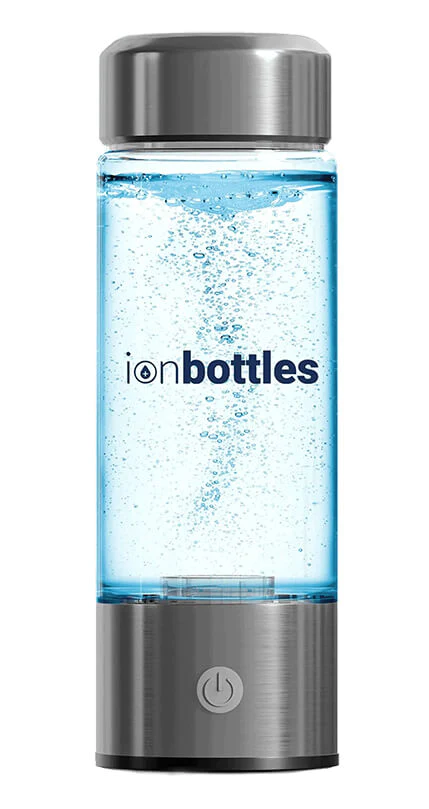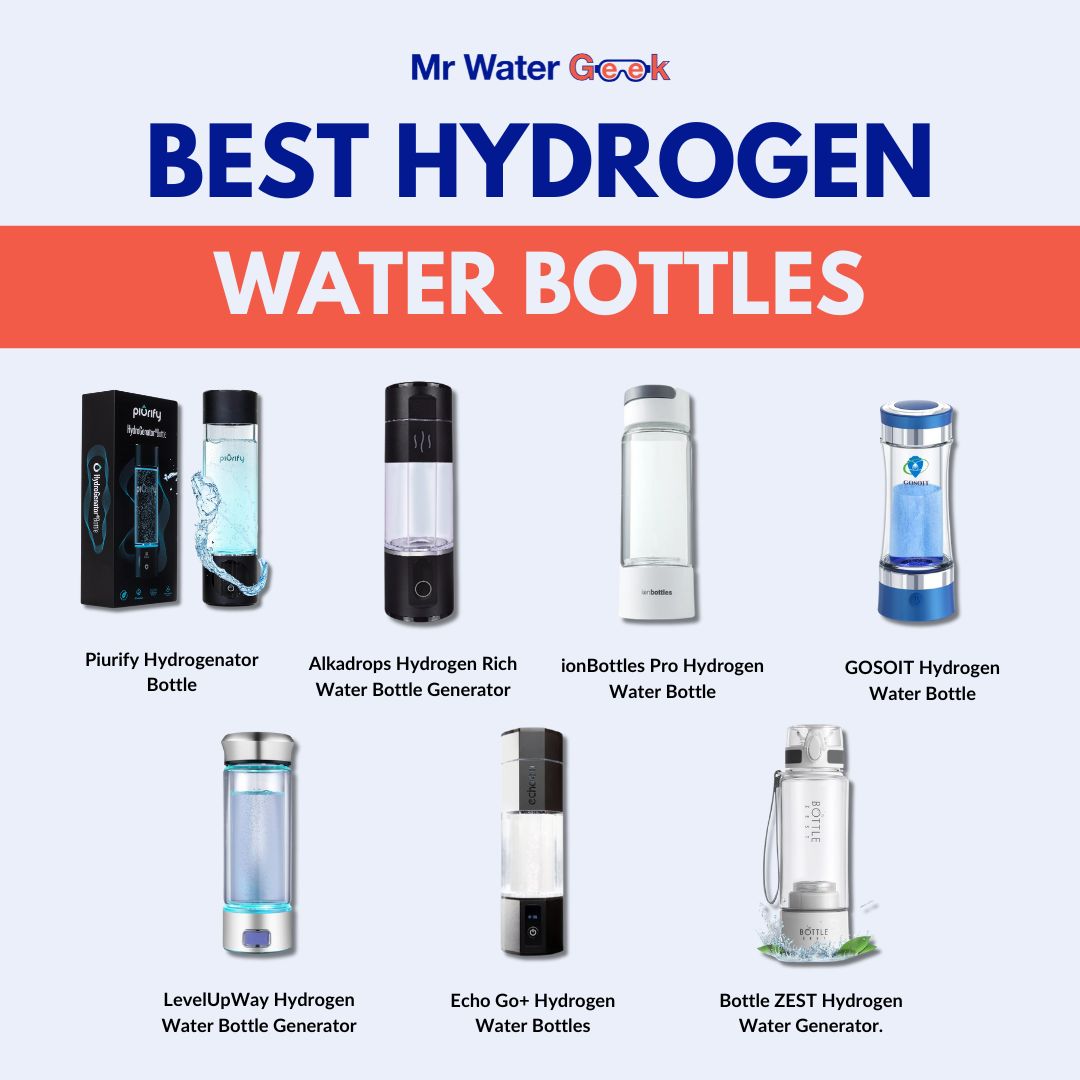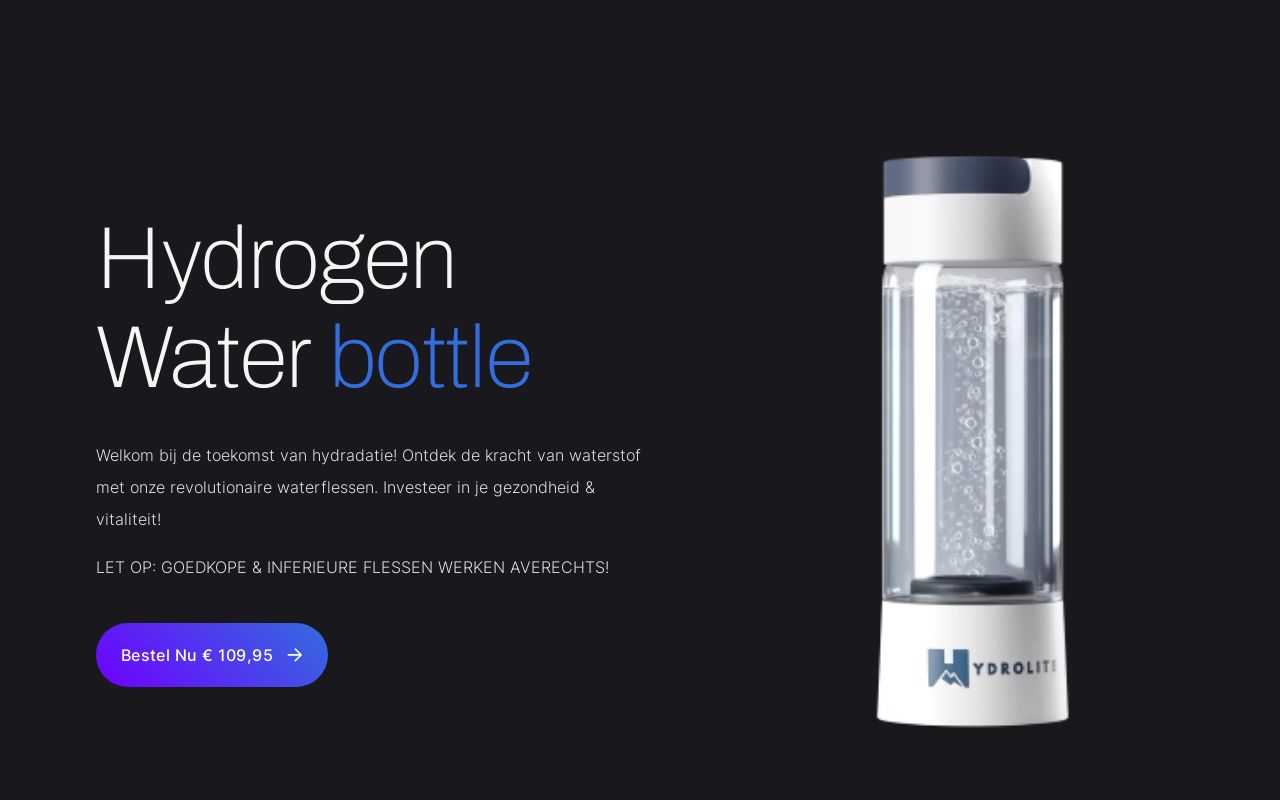Hydrogen Water Bottles That Can Use Tap Water

The promise of hydrogen-rich water as a health elixir has fueled a burgeoning market, but persistent concerns over purity and accessibility have long shadowed the industry. Now, a new generation of hydrogen water bottles claiming to produce high-concentration hydrogen water directly from tap water is poised to revolutionize the market, potentially democratizing access to this purported health benefit while simultaneously raising crucial questions about safety and efficacy.
This innovation arrives at a critical juncture, promising convenience and affordability, but necessitates careful scrutiny of the technology's underlying mechanisms, independent validation of its claims, and robust regulatory oversight to ensure consumer safety and prevent potential health risks. The arrival of these "tap-to-hydrogen" bottles represents a paradigm shift, demanding a thorough examination of their potential benefits, drawbacks, and long-term implications for both consumers and the broader health and wellness landscape.
The Technology Behind Tap-to-Hydrogen Bottles
Most commercially available hydrogen water bottles rely on electrolysis, splitting water (H2O) into its constituent hydrogen (H2) and oxygen (O2) molecules. Traditional models often require purified water to minimize the introduction of contaminants into the electrolysis process and subsequent hydrogen-rich water.
The novel aspect of these new bottles lies in their purported ability to handle tap water, which contains a complex array of minerals, salts, and potential contaminants. These bottles typically employ advanced filtration systems combined with modified electrolysis cells designed to tolerate impurities commonly found in tap water, according to manufacturers' promotional materials.
The key claim is that these systems can effectively separate and remove harmful elements like chlorine, heavy metals, and bacteria before or during the electrolysis process, leaving behind pure hydrogen gas that dissolves into the water. However, the effectiveness and longevity of these filtration systems are critical factors that require independent verification.
Claims and Counterclaims: Health Benefits and Scientific Scrutiny
Proponents of hydrogen water tout a range of health benefits, including antioxidant properties, reduced inflammation, and improved athletic performance. These claims are often based on studies showing that molecular hydrogen (H2) can act as a selective antioxidant, neutralizing harmful free radicals in the body.
However, the scientific evidence supporting these claims remains limited and often inconclusive. While some studies have shown promising results, many are small-scale, poorly controlled, or conducted in vitro (in test tubes) or on animals, making it difficult to extrapolate findings to humans.
Organizations like the National Institutes of Health (NIH) emphasize the need for more rigorous, large-scale clinical trials to definitively establish the health benefits of hydrogen water. Skeptics also question the concentration of hydrogen actually absorbed by the body from drinking hydrogen-rich water, suggesting that the amounts may be too small to produce significant physiological effects.
The Safety Question: Tap Water Contaminants and Electrolysis Byproducts
One of the primary concerns surrounding tap-to-hydrogen bottles is the potential for incomplete removal of contaminants from tap water. Even with advanced filtration, there is a risk that harmful substances could pass through the system and end up in the hydrogen-rich water.
Dr. Emily Carter, a water quality expert at the Environmental Protection Agency (EPA), cautions that "the effectiveness of filtration systems can vary significantly depending on the type and concentration of contaminants present in the tap water. Regular testing and maintenance are crucial to ensure that the system is functioning properly and effectively removing harmful substances."
Another concern is the potential for the formation of harmful byproducts during the electrolysis process, particularly if the water contains certain minerals or salts. These byproducts could include chlorine gas or other toxic compounds, which could pose a health risk if ingested. Manufacturers must demonstrate that their systems effectively prevent the formation of these byproducts and ensure that the final product is safe for consumption.
Regulatory Oversight and Consumer Protection
Currently, the hydrogen water bottle market is largely unregulated, which raises concerns about product quality, safety, and misleading marketing claims. Consumers often rely on manufacturers' assertions without independent verification of the product's effectiveness or safety.
Consumer advocacy groups are calling for stricter regulatory oversight of the industry, including mandatory testing and certification of hydrogen water bottles to ensure they meet established safety standards. They also advocate for clear and accurate labeling of products, including information about the concentration of hydrogen, the effectiveness of the filtration system, and potential risks or side effects.
The Food and Drug Administration (FDA) does not currently regulate hydrogen water bottles as drugs or medical devices, but could potentially intervene if products are found to be adulterated, misbranded, or pose a significant risk to public health.
Market Trends and Future Outlook
Despite the concerns, the hydrogen water bottle market is experiencing rapid growth, driven by increasing consumer interest in health and wellness products. Tap-to-hydrogen bottles are particularly appealing due to their convenience and affordability compared to pre-packaged hydrogen water or traditional hydrogen generators.
Manufacturers are investing in research and development to improve the performance and safety of their products, including the development of more effective filtration systems, advanced electrolysis technologies, and real-time monitoring systems to detect contaminants and byproducts. Industry analysts predict that the market for hydrogen water bottles will continue to expand in the coming years, particularly in Asia and North America.
However, the long-term success of tap-to-hydrogen bottles will depend on their ability to address the safety concerns and scientific skepticism surrounding the technology. Independent validation of product claims, robust regulatory oversight, and transparent communication with consumers will be essential to building trust and ensuring the responsible growth of the industry.
Moving Forward: A Call for Transparency and Scientific Rigor
The emergence of tap-to-hydrogen water bottles presents both an opportunity and a challenge. The potential to democratize access to hydrogen-rich water is significant, but it must be balanced with a commitment to consumer safety and scientific rigor.
Manufacturers must prioritize transparency and provide consumers with comprehensive information about their products, including details about the filtration system, electrolysis process, and potential risks. Independent researchers should conduct rigorous studies to evaluate the effectiveness and safety of these bottles, and regulatory agencies should establish clear standards and guidelines to ensure consumer protection.
Ultimately, the future of tap-to-hydrogen water bottles hinges on the ability of the industry to address the concerns and demonstrate that these products are safe, effective, and beneficial for consumers. Only then can the promise of hydrogen-rich water be realized without compromising public health.


















